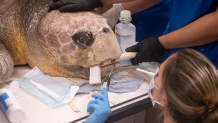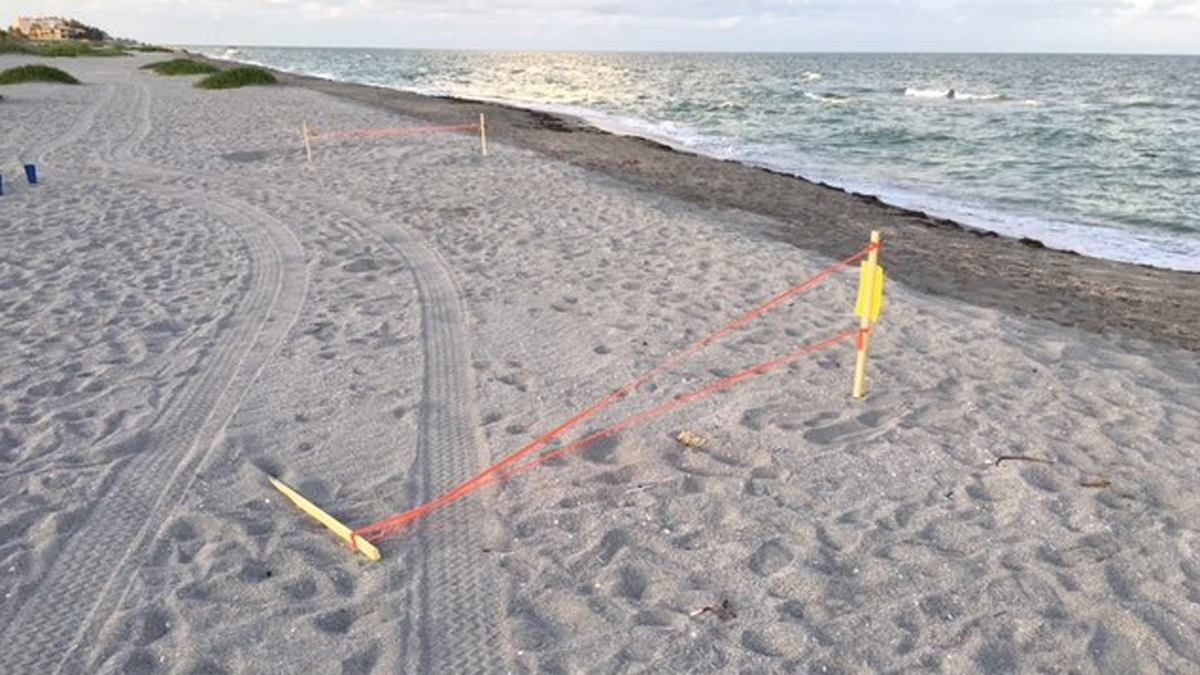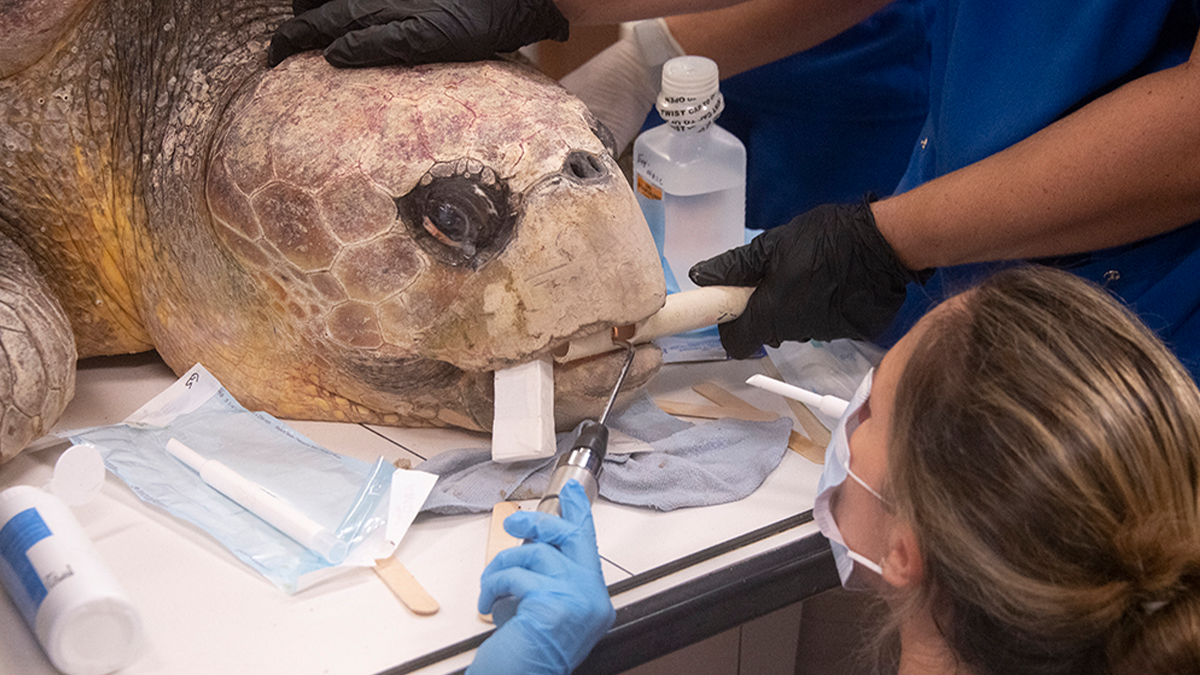While there was once a time when injured or diseased sea turtles had nowhere to go for treatment, this era has come to a close with the opening of Zoo Miami's sea turtle hospital.
Here, sea turtles will be nursed back to health in preparation for their return back into the wild.
According to hospital director Rosemary Lucas, sea turtles often suffer at the hands of humans' plastic pollution, fishing habits or boating trips.
"Turtles are amazing creatures. They do quite well in the wild out there against their natural predators for the most part," she said. "It’s human threats which are really the biggest things. That is our hope: to help mitigate some of those human threats as well.”
Get South Florida local news, weather forecasts and entertainment stories to your inbox. Sign up for NBC South Florida newsletters.
SEA TURTLES
Weeks before the official opening of the sea turtle hospital, a massive female loggerhead sea turtle laden with eggs was transported to Zoo Miami for emergency care after a severe injury believed to be caused by a shark bite.
At the time, the zoo's newly constructed sea turtle hospital had just recently passed inspection and received its permits to accept sick and injured sea turtles.
After recovering in a special stall in the zoo’s main hospital, Baymax was transferred back to her tank at the sea turtle hospital where she is being closely monitored until the staff feels that she is healthy enough to be returned to the wild.
The hospital also treated a juvenile green sea turtle named Sunny, because he was injured by a fish hook at the Sunny Isles Beach pier, and also survived a shark attack. The hospital can treat 16 turtles at a time.
Later in the afternoon, zoo handlers brought Sunny to Crandon Park beach and released him back into the wild.
While there were previously few treatment options for sea turtles due to limited capacity at the seaquarium, this new hospital allows the animal a place to go when they encounter danger.
Officials urge any person who comes across an injured or diseased sea turtle to call the Florida Fish and Wildlife Conservation Commission, which will then facilitate treatment at Zoo Miami.
In doing so, the county is attempting to offset the human impact on sea turtles' health, and better emphasize the integral role the animal plays in our ecosystems.
“Sea turtles are important. They’re kind of like a litmus test for the health of the oceans, and this dedication is really a milestone for making sure that they continue to thrive," said Miami-Dade County Parks director Maria Nardi, just before she and Mayor Daniella Levine-Cava ceremonially cut the ribbon to inaugurate the facility.

There are five sea turtle species found in Florida and all of them are either endangered or threatened species. Lucas says it’s due to human activity; because of plastics they eat in the ocean, being hooked by fishermen, and being run over by boaters.
“We are the number one nesting beach in the world for our loggerhead sea turtles and right now it’s the summer when they’re all nesting, they’re all really close to shore, so that is one of the number one threats, turtles being hit by boats, they are reptiles who have to breathe air so they have to come to that surface to breathe,” Lucas said.
Sea turtles spend a lot of time on the surface, which makes them inadvertent but easy targets. Sunny is only three to four years old. The hope is that he will survive to mating age, which is at least 10 years away.
Zoo Miami is asking anyone who sees an injured or sick sea turtle to call the FWC Wildlife Line at 888-404-3922.



